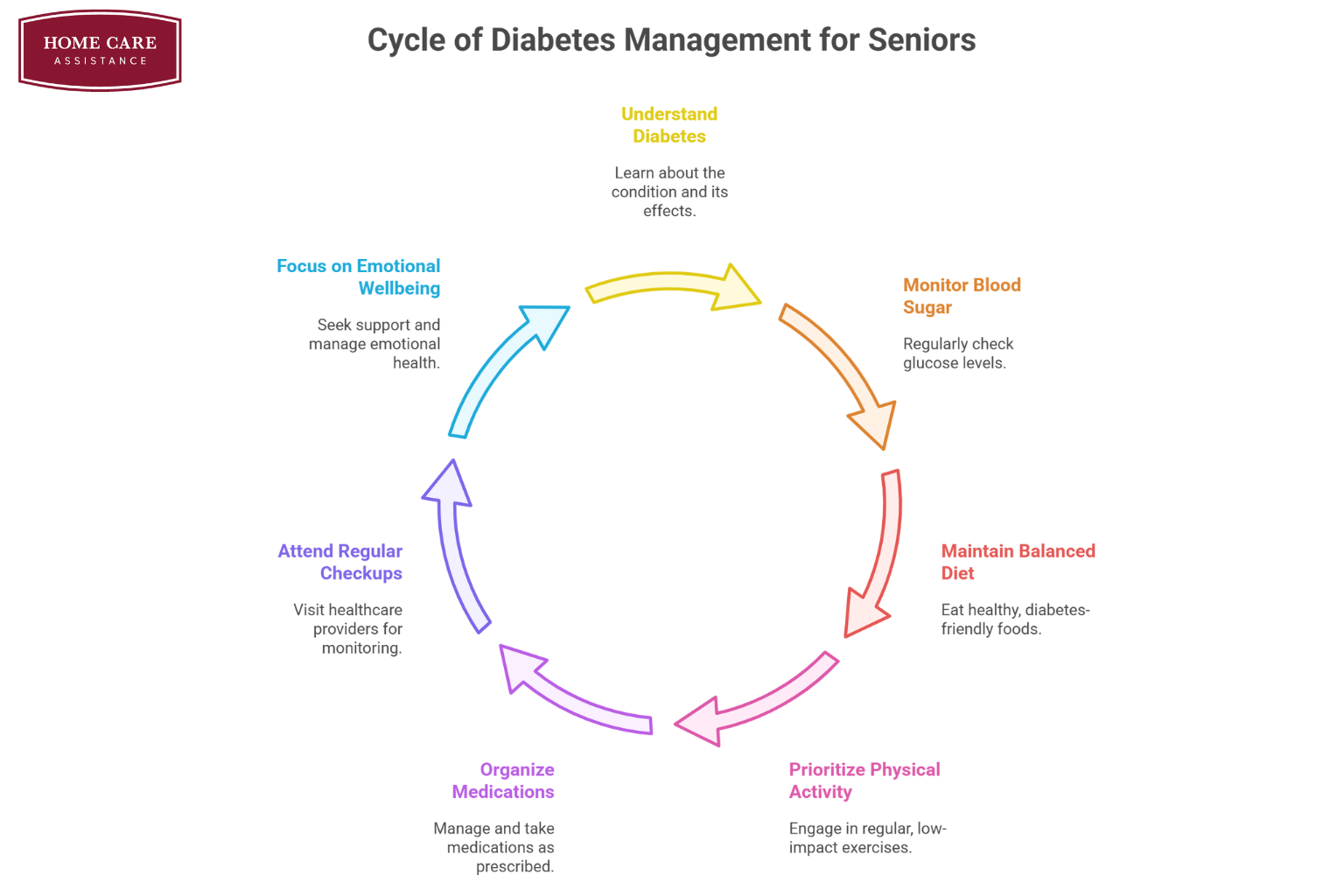
Table of Content
Understand What Diabetes Is
Diabetes is a condition that affects how the body regulates blood sugar (glucose). Glucose is an essential energy source for the body, but in people with diabetes, blood sugar levels can become too high due to issues with insulin production or usage. Seniors are often diagnosed with Type 2 diabetes, which is linked to insulin resistance and lifestyle factors. Understanding the condition is the first step toward managing it effectively.
Monitor Blood Sugar Regularly
Regular blood sugar monitoring is a key component of managing diabetes. For seniors, this may include using a glucometer to check glucose levels at home. Caregivers or family members may also assist with this task. Consistent monitoring helps older adults track trends in their blood sugar, identify any problems early, and follow their doctors’ recommendations to adjust their management plans as needed.Tips for monitoring blood sugar:
- Always follow the schedule advised by your healthcare provider.
- Keep a log of blood glucose readings to share with your medical team.
- Be attentive to symptoms of high or low blood sugar, such as dizziness, fatigue, or confusion.
Maintain a Balanced Diet
A healthy and balanced diet is fundamental in diabetes care for seniors. Proper nutrition regulates blood sugar levels and ensures seniors get the nutrients they need to stay healthy. A diabetes-friendly diet often includes the following:- High-fiber foods – Whole grains, fruits, vegetables, and legumes can manage blood sugar spikes.
- Lean proteins – Poultry, fish, tofu, or eggs provide essential nutrients without excessive fat.
- Healthy fats – Avocados, nuts, seeds, and olive oil contribute to heart health, which is especially important for seniors with diabetes.
Prioritize Physical Activity
Staying active is another essential aspect of diabetes care for seniors. Regular physical activity helps seniors increase insulin sensitivity, maintain a healthy weight, and enhance overall wellbeing. For seniors with diabetes, low-impact exercises such as walking, swimming, or yoga are often recommended. These activities are easy on the joints and can be adapted to various fitness levels. Before starting any new exercise regimens, seniors should consult their physicians to ensure they’re safe and suitable for their abilities. Even seniors who have health challenges can still get the benefits of exercise, especially with the help of trained professional caregivers. Home care service professionals can be a wonderful boon to seniors. Whether they require around-the-clock supervision or just need assistance with exercise and household tasks a few days a week, seniors can enjoy a higher quality of life with the help of trusted in-home caregivers.Organize Medications and Attend Regular Checkups
Many seniors with diabetes rely on medications, such as insulin or oral drugs, to keep blood sugar levels in check. Proper medication organization is vital to avoid complications, such as hypoglycemia (low blood sugar). Seniors should:- Take medications exactly as prescribed
- Use pill organizers or set reminders to avoid missed doses
- Follow up with their healthcare providers about any side effects or concerns